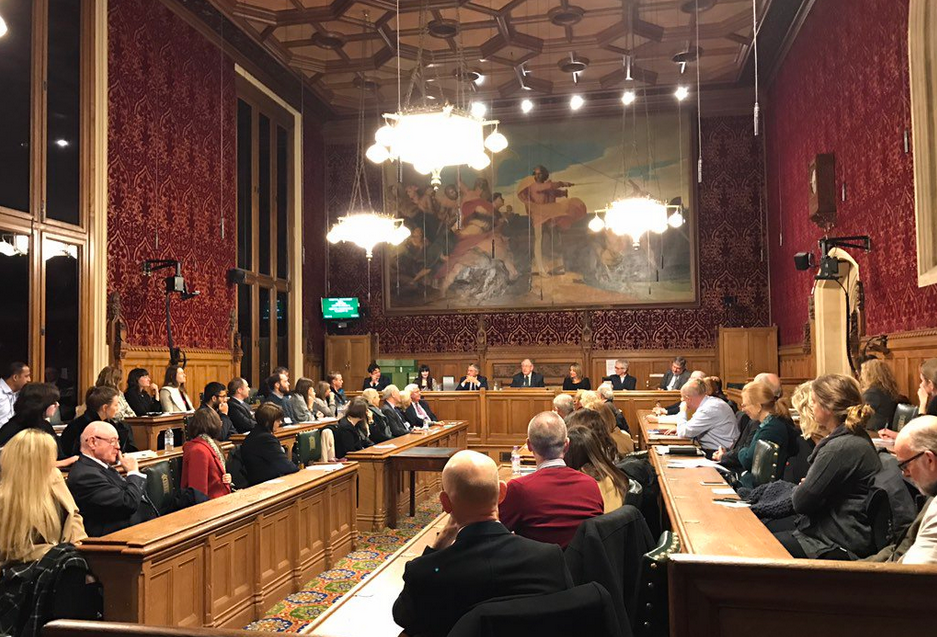Marketers and PRs debate restoration of trust in Parliament
An audience of more than sixty marketers and PR professionals gathered at the House of Commons last night for a lively debate on the role of marketing, chaired by the Rt Hon Lord McNally.
The motion - Marketing has little part to play in rebuilding trust in businesses, charities or public institutions - was heavily defeated in a debate which sparked contention around the purpose and remit of public relations and marketing.
Dr Jon White FCIPR and Bridget Aherne MCIPR argued passionately that marketing was limited in its capacity to rebuild trust due to its refined focus, whilst public relations' inherent proximity to people and relationships meant it was perfectly placed to deliver truth and trust.
Opposing the motion, marketers Sharon Johnson and Professor Ian Bruce CBE conveyed their belief that PR is a subset of marketing and that marketing alone, with its tools of research and segmentation, has the power to restore trust in society's institutions.
Arguments from the speakers were complemented by insightful contributions from the floor, predominantly from those opposing the motion and advocating the wider social importance of marketing.
The event was organised by the Debating Group and sponsored by the Chartered Institute of Public Relations (CIPR), with support from the Chartered Institute of Marketing (CIM).
Quick reminder of tonight's motion. Follow the debate using > #CIPRDebate pic.twitter.com/imErKhFooI
— CIPR (@CIPR_UK) November 28, 2016
"PR is not about pushing a message and making it stick. We're about making connections+stimulating conversation" @BridgetAherne #CIPRdebate
— CIPR (@CIPR_UK) November 28, 2016
"Marketing is important but has its limitations. PR has a broader influence in terms of its relationships" argues @DrJonWhite #CIPRdebate
— CIPR (@CIPR_UK) November 28, 2016
"Only marketing has the power and tools to deliver the value exchange that leads to trust" argues @shaxi #CIPRdebate
— CIPR (@CIPR_UK) November 28, 2016
Notes to editors
About the Chartered Institute of Public Relations (CIPR)Founded in 1948, the Chartered Institute of Public Relations (CIPR) is the Royal Chartered professional body for public relations practitioners in the UK and overseas. The CIPR is the largest membership organisation for PR practitioners outside of North America. By size of turnover and number of individually registered members, we are the leading representative body for the PR profession and industry in Europe.
The CIPR advances professionalism in public relations by making its members accountable to their employers and the public through a code of conduct and searchable public register, setting standards through training, qualifications, awards and the production of best practice and skills guidance, facilitating Continuing Professional Development (CPD), and awarding Chartered Public Relations Practitioner status (Chart.PR).


